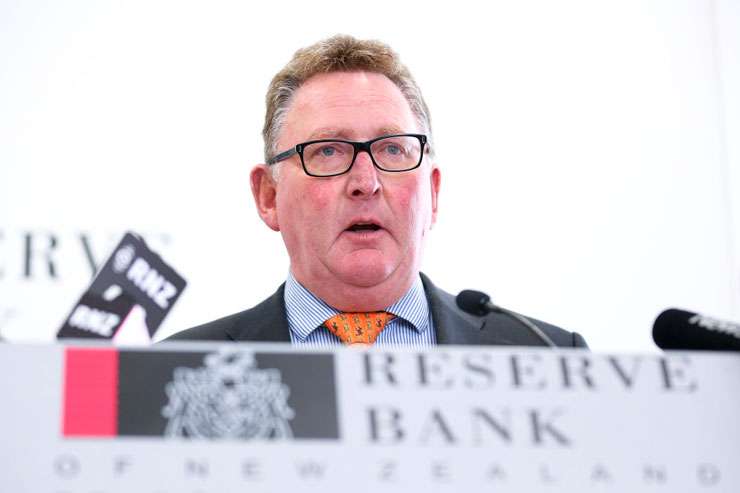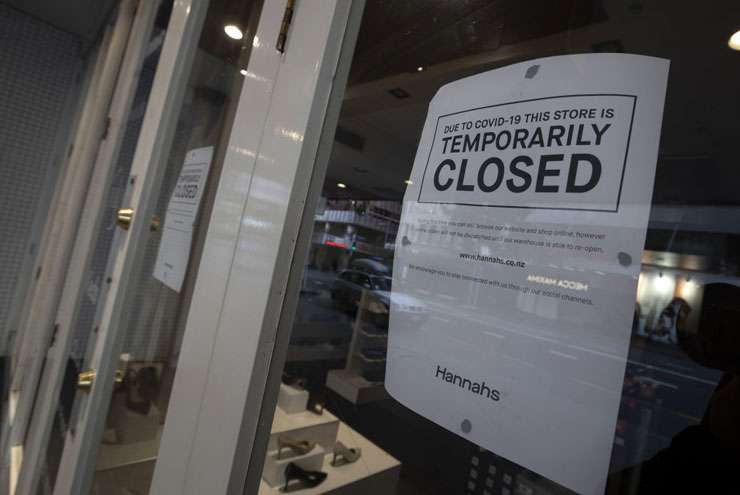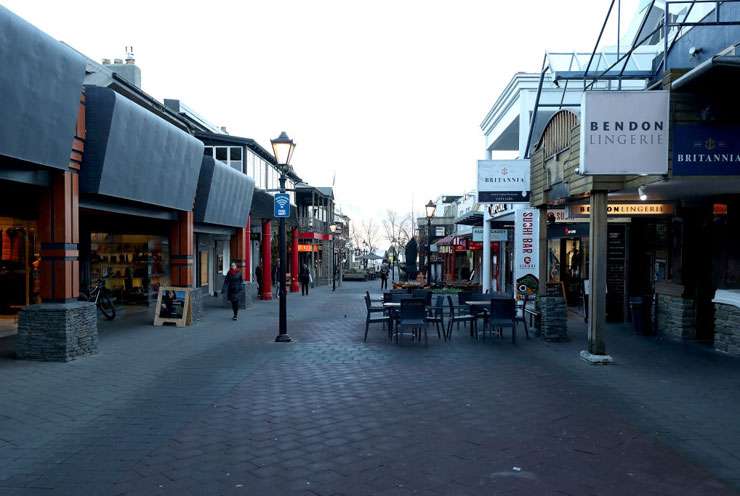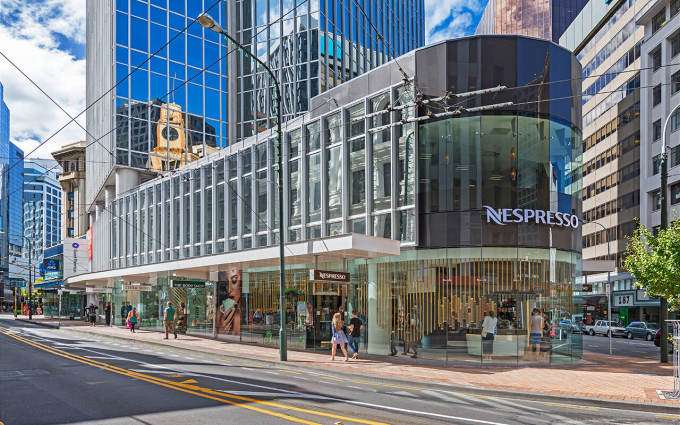The commercial property sector started 2020 in a good place. Agents were buoyed by strong sales and buying activity in 2019 and the outlook for the months was universally positive, with yields sharpening in in key asset classes. But when Covid struck, and the country went into lockdown, the economic forecasts for the sector were grim. While most experts thought the residential sector would eventually bounce back from predicted price declines, few thought the same for the commercial sector: no one knew how long New Zealand would be in lockdown, how long we’d have to work from home and how long it would be before we could safely shop in the high street or eat out at a restaurant. Landlords and investors, particularly those with assets in retail, hospitality, tourism and office sectors feared for their future, and rent relief was a big issue. But out of lockdown came hope and then a rush of sales and investments that have left the market stronger than ever. OneRoof talked to industry leaders and experts to see how they got through one of the most tumultuous years in real estate. They had high praise for the measures the Government put in place and have a lot of optimism for 2021.
January 1 to Feb 29, 2020: Good times ahead
TODD LAUCHLAN, managing director of JLL New Zealand: 2020 looked as if would another good year for the industry. We had eight to ten years of a strong upwards swing but I guess all of us who have been around the traps a bit would have been a little bit nervous that there could be something around the corner, because it does seem to be that every seven to ten years there’s something that impacts the market, whether some sort of financial crisis or crash or correction.
RYAN JOHNSON, Bayleys national director of commercial property: We were just gearing up for another year. From a growth perspective, it was business as usual across all the sectors. If anything was going to materially change the commercial real estate sector, it would be the possibility of an increase in interest rates.
Start your property search
JOHN URLICH, Barfoot & Thompson commercial manager: We’d heard rumblings about Covid, of course, but we didn’t possibly think it would hit the world in the way it did. We had a number of large deals in the works: we’d sold 280 Queen Street for $70 million had 2degrees sign a very large lease in a Mansons development.
ANDREW STRINGER, senior managing director, CBRE NZ: When we held our business strategy session in Sydney in February we started to hear concerns about Covid, particularly from our Hong Kong and our US businesses, but I don’t think at that point we had any concept of how significant it was going to be.
March 1 to March 25: Covid spreads and the market gets nervous
RYAN JOHNSON: Markets don’t like uncertainty and that was what we were seeing. Truth be told, no one really knew what was going on. The reality probably didn’t hit until that announcement of the lockdown [on March 23]. You plan for the worst and hope for the best and I think the speed of how it came about was probably what caught everyone by surprise. You only had 72 hours to prepare your business for what would be an abrupt loss of revenue.
ANDREW STRINGER: I’m not sure the worry had kicked in at the start of March. We did start to think about what Covid would mean for our business. We are an industry that relies on relationships, so how would we maintain those relationships? We put our concerns about market performance to one side and asked, “Actually, how do you just do business?”
The basic DNA of the investment world was being called into question because the starting point was, “Who’s going to pay rent?” The busiest part of our business was property management, and a lot of that was around health and safety and ensuring buildings could continue to operate even if there weren’t people in them, because you don’t just mothball or flick the switch on a building.

Reserve Bank governor Adrian Orr announces a cut to the OCR in March. Photo / Getty Images
TODD LAUCHLAN: I don’t think I ever thought things would crash. I think I’ve probably been in enough challenging economic environments and cycles to know that there’s always light at the end of the tunnel. I was in Beijing when they had SARS but within a few months it [life] was very much back to normal and you wouldn’t have even known there was any impact. I don’t think I was really sure at the beginning of March - I don’t think any of us were sure how contagious Covid was.
We’re a global business and we’ve always been pretty conservatively managed so I knew we wouldn’t have a problem paying the rent. A lot of our long-term clients were uncertain as to what Covid meant to them. Would portfolios need to be revalued? What would happen if someone didn’t pay rent? We were asked to do a lot of additional work for our clients.
JOHN URLICH: There was a lot of trepidation but we were optimistic that we’d probably get through okay. Pre-lockdown we were battening down the hatches. Our property managers were particularly busy looking to brief landlords and tenants on what might be coming. Then all of sudden we found ourselves on Zoom.
March 26 to May 12: New Zealand is in lockdown and the commercial property market is on hold
JOHN URLICH: We really didn’t know what we were getting into. Mostly, it was about keeping everybody busy and maintaining business. It was very surreal. Those weeks went by quickly. We kind of found ourselves talking a lot to clients who were only too happy to talk because the amount of time they had on their hands. The biggest topic was definitely rent abatement and what constituted fair and reasonable. Everybody had a different approach and there were different stories, particularly in regard to major chains. These were crazy times. Very quickly you found there was no one size fits all; everybody was moving in all directions. Some service industries, obviously, continued to work online and generate revenue but for everyone else it was very difficult.

Auckland’s CBD became a ghost town as a result of the lockdown. Photo / Getty Images
ANDREW STRINGER: We managed to keep the vast majority of our workforce fully employed and we’re really proud of that. I think we also took a really pragmatic view around the personal pressures people undoubtedly felt. A lot of our people were really anxious. We’ve got a relatively young team so this was the first big sideswipe to their careers. We’ve also got a lot of people who are commission-only so you can imagine all of those stresses.
TODD LAUCHLAN: We were in survival mode. We cut all discretionary spending; we weren’t travelling and we weren’t spending any money on marketing. We were doing all the things any business would have done to manage cash flows and keep as many people working as possible.
Our business was heavily impacted. We were 60 percent down in April and May on previous years. If you were involved in selling or leasing you couldn’t do an inspection and no one wants to commit to new projects and the banks won’t necessarily release funds so that side of the business stops. However, the research, corporate solutions, facilities management and valuation consultancy businesses continued on as normal. They dipped but they didn’t dip by much.
RYAN JOHNSON: The key term that defined who did well and who didn’t during lockdown was “essential services”. The loss of four million foreign tourists a year hit the accommodation and hospitality sectors hardest as well as businesses that relied on high foot traffic. As an essential service that stayed open during lockdown, supermarkets did well, but we also started to see the flow on effects of ecommerce and supply chains. Our conversations with clients started to become quite personal. It was almost a two way counselling session to a degree.

The loss of foreign visitors hit tourist destinations like Queenstown hard. Photo / Getty Images
May 13 to August 31: A strange new world
ANDREW STRINGER: I think there was an inherent nervousness that things could change rapidly but confidence was building day by day. We started to see quite strong levels of inquiry from offshore investors. New Zealand’s always been well regarded because it’s highly transparent and pretty easy to invest in, but mostly investors were seeing how well the Government was managing Covid, and we closed some big deals as a result of that.
RYAN JOHNSON: We had done a huge amount of work around how we would come out of lockdown, so the week it finished we launched our biggest ever property portfolio - 150 properties. We wanted to show that market would carry on after that seven to eight-week pause. People had to make decisions around selling properties.
JOHN URLICH: Bargain hunters were out but we never saw any fire sales. As is typical in this country, after about two or three months waiting for something to happen everybody went, “Ah, let’s just get on with it.”
TODD LAUCHLAN: Once we got out of lockdown there was a period in June where we were all out and we really felt like we were the only country in the world that had sorted it out. We had a strong bounce-back in June. The business was really busy again, our clients were very active and they were trying to understand what the changes in monetary policy meant for them. Interest rates are a big driver of value and bond-buying and that sort of stuff drives a lot of liquidity into the market. I think the second [Auckland] lockdown psychologically was tough. I think that was tough for my team and for our clients - I think it was tough for everybody.
September 1 to December 1: The market runs hot
TODD LAUCHLAN: There was a lot of demand, demand for large format retail stores, like Bunnings; demand for industrial; demand for small commercial properties in good locations with good tenants. I guess we were all surprised by how strong things bounced back but then I think we can thank the Government and the Reserve Bank governor for a pretty sensible approach in trying to get the economy moving and making sure there’s a sense of confidence out there. I’m always a bit hesitant to use the word boom, because what follows boom? Bust. But I don’t think we are in danger of that. People think real estate’s a pretty good option. We’ve run seven auctions in the last couple of months for properties in the $1 million to $4 million range and they’ve all sold on the day in the room. New Zealand is a safe haven and we are certainly getting a lot of inquiry from our foreign clients wanting to do more here. Probably we’ll see more investment in what we call the alternative sector - things like data centres, medical facilities and build to rent.
RYAN JOHNSON: The way the market has performed in the last quarter - I’ve never seen anything like it in my 20 years in real estate. The reduction in interest rates has flooded the market with capital and cash and has driven down yields to record levels. There’s been $18.4 billion withdrawn from bank term deposits and that tells a very big story around the amount of cash in the New Zealand economy. It’s been nothing short of remarkable.
We’ve done some big deals, and I think there’s a lot of confidence in the market based on the fact that interest rates are going to remain low for the foreseeable future and vaccinations are imminent. We’re getting foreign interest from ultra-high net wealth and institutions.

Grant Thornton House at 215 Lambton Quay, in Wellington, sold recently for $84.5 million. Photo / Supplied
JOHN URLICH: A lot of people were out there looking for a deal. Land sales have really led the way - they’ve been an absolute star. The last quarter has been phenomenal. We’ve absolutely smashed our biggest month and it’s been really quite incredible the amount of turnover we’ve done to the point where we’re confident we can track on par with last year come our financial year end. I’m quietly confident. There’s quite a bit of optimism from here. We’ve got room for improvement in sectors of the economy but overall it’s looking really promising and hopefully the vaccinations will increase confidence. I’m picking retail and office sectors will come back a little bit stronger than people predict. It’s a resilient economy. I can’t tell you the long-term effects of the Labour Party choosing to spend the way they have but there’s no question it’s been positive in the short-term. It really has added so much to so many people.
ANDREW STRINGER: You couldn’t say hot in the way the residential market’s run hot. It’s still been a really tough year and our financial performance was a record year last year. We’re not going to repeat that but I’m very pleased in relative terms where I think we’ll finish up. Some parts of the business have been strong and some have been heavily impacted. Investment sales have been very strong as has our property management business because they’ve been fighting fires, but certainly our leasing business, which relies on business confidence and a desire to relocate and expand, has not been particularly active. There’s no one size fits all but on balance there’s a definite uptick in activities. I’m absolutely more optimistic but with that caution the economy is completely and utterly tied at the moment to a health situation and so we’re hugely mindful of that. Let’s hope the vaccine proves to provide the benefit, and the rest of the world manages its way through this, so we’re not lurching from lockdown to lockdown.
















































































